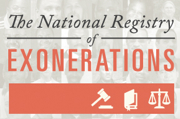 June 11, 2012
June 11, 2012
After discovering the National Registry of Exonerations, I was happy to see that it lists Little Rascals defendants Bob Kelly and Dawn Wilson, whose convictions were overturned on appeal.
But what about Betsy Kelly and Scott Privott, who both finally accepted plea deals while maintaining their innocence, and Robin Byrum, Darlene Harris and Shelley Stone, all of whom waited years for prosecutors to drop charges?
The registry, a joint project of the University of Michigan Law School and the Center on Wrongful Convictions at Northwestern University, speaks unequivocally about “a wave of child sex abuse hysteria that swept the country….
“Starting in the early 1980s, some prosecutors, therapists and child welfare workers became
convinced that child sex abuse on a massive scale was rampant in their communities. They
believed that most of the victims were too afraid or embarrassed to discuss the abuse, so they
worked to overcome this fear and reluctance by using highly suggestive, persistent and
unrelenting questioning techniques when interviewing the young children.
“It worked. Some of the children complied and accused parents, day-care workers and adult acquaintances of numerous horrifying and bizarre acts. This led to a series of extraordinary prosecutions, many involving allegations of satanic rituals.”
Unfortunately, this acknowledgment of the moral panic doesn’t earn the remaining “Edenton 5” a listing in the registry. Here’s why, according to research assistant Ted Koehler:
“For a case to count as an exoneration for our purposes, a person convicted of a crime must be declared factually innocent by a government official or organization with authority to make such a declaration.
“If this has not happened, a person can still be exonerated if the person was relieved of all consequences of the criminal conviction by a government official with proper authority, through pardon, acquittal of the charges for which the person was originally convicted, or dismissal of those same charges. In such a case, the pardon, acquittal, dismissal or posthumous exoneration must have been the result, at least in part, of evidence of innocence that either (i) was not presented at the trial at which the person was convicted; or (ii) if the person pled guilty, was not known to the defendant or to the defense attorney and the court at the time the plea was entered.
“The Edenton case was a terrible witch hunt. Regretfully, though, because they do not meet the criteria above, Kelly’s and Privott’s guilty pleas and the dropped charges against Byrum, Stone, and Harris do not fit our definition of an exoneration, and are not listed on the registry for that reason.”
I understand the registry’s need to set the bar so high. But what a curious twist that the defendants’ only hope for exoneration lies with the same state that so unjustly prosecuted them.
